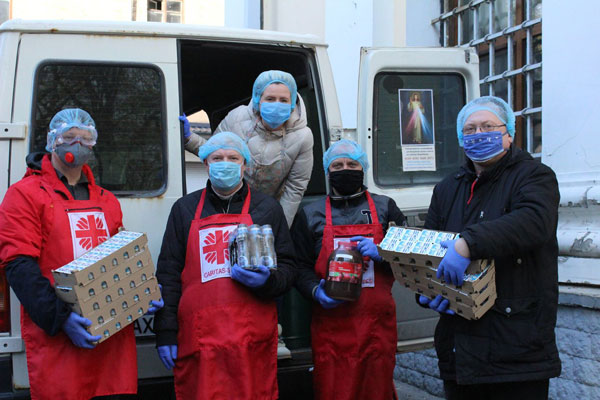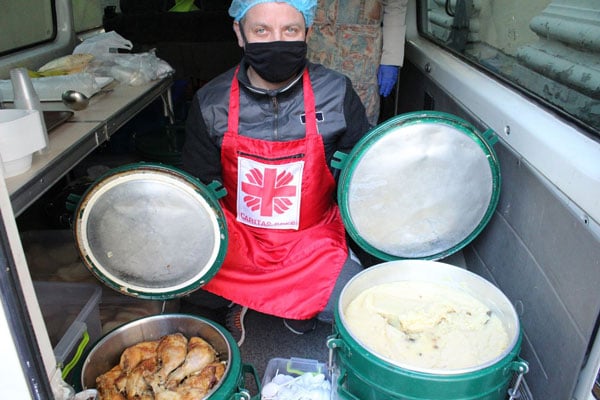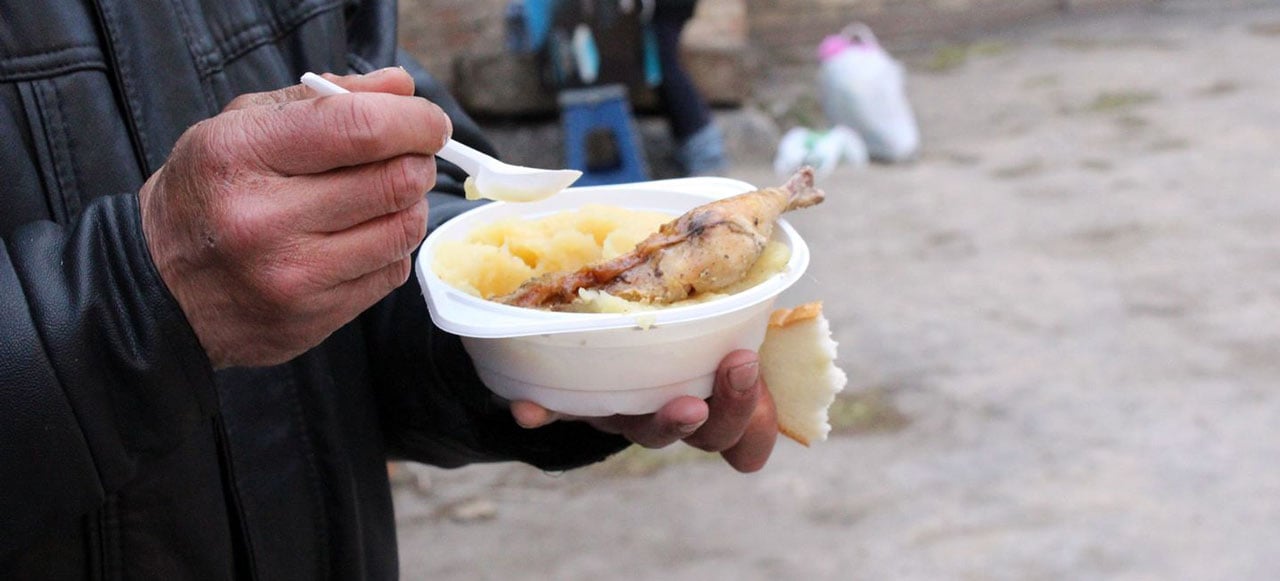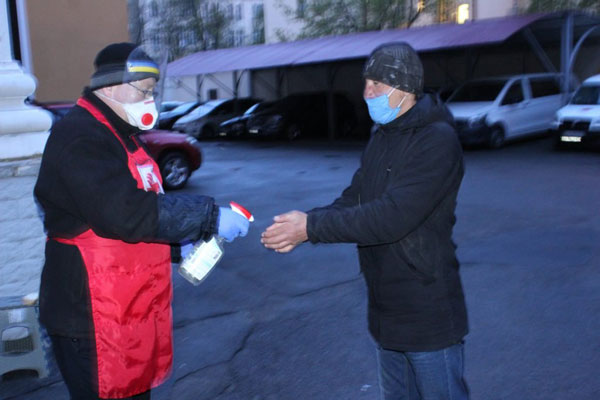UKRAINE
By Fr. Vadym Dorosh, OMI
(This article is based on materials from the Facebook page of Caritas-Spes Ukraine and the website of the OMI Delegation in Ukraine and Russia: omi.org.ua)

Bro. Sebastian (extreme right) with Caritas volunteers
At this difficult time for Ukraine, when, on the one hand, to the east we have the Russian-Ukrainian war, and on the other, the state of emergency and quarantine established throughout the country due to the Covid-19 virus, the need to serve the homeless of the capital (Kyiv) has only increased. With the permission of the civil authorities, and in keeping with the corresponding sanitary and quarantine regulations, a group of people tries to serve the most abandoned population in all possible ways. One of the most active is Brother Sebastian JANKOWSKI, who dedicates his time daily to the homeless, not only giving them food, but also a kind word and his whole heart.
Almost from the beginning of his ministry in Ukraine, he began to serve the poorest.
As he explains, it all started when he started making sandwiches and distributing them at the train station. Others began to help him distribute the food. Initially, he could feed only about 20 people. Then some young people from the Oblate parish in Kyiv, the Parish of Saint Nicholas, joined this good cause. Little by little, the number of volunteers, and also of those in need, increased. Gradually it began to assume its own character. Today it is an organization of social assistance to the homeless under the auspices of Caritas-Spes of Ukraine (the Caritas branch in Ukraine for the Catholic Church of the Latin Rite) and with the blessing of the bishop. It should be added that they help homeless people not only with bread and material needs. More than once Brother Sebastian has organized festive Christmas celebrations and dinners for them. Some homeless people have also received help to return to a normal rhythm of life through a rehabilitation process.
In addition to Kyiv, one can also mention the “House of Mercy” opened in Obukhiv, about 30 kilometres south of the capital, at the central house of the Delegation of the Missionary Oblates in Ukraine and Russia. In this house, people in need can listen to a short homily, pray, and dine daily. They also have the opportunity to shower and spend the night.
I once asked Brother Sebastian why he did all this. He answered, “When I serve the poor, I always remember the words of the Gospel of Matthew, that is, that when I feed them, I serve God himself. Furthermore, I am convinced that all of them, in their prayers, intercede for us before our Heavenly Father. That is precisely why we are growing, and I also firmly believe that when I die, Jesus Christ will stand before me with the faces of those dirty people, often crippled and homeless, and say, ‘That was me’”.
In the morning, the kitchen workers go to the social center, where they wash the thermoses and all the containers. Meanwhile, fresh food is prepared in religious houses (thrice a week the Missionaries of Charity, and twice a week the Oblates themselves, under the direction of our chef, Fr. Artur STRONCZEWSKI). Brother Sebastian and Igor, who is one of the volunteers, stock up food, first aid kits, and other necessary supplies and, by 4:00 p.m., leave to pick up the volunteers, going to the Latin Catholic Cathedral of Saint Alexander. From 5:30 p.m. to 9:30 p.m., they feed the homeless.

During the Kyiv quarantine, the ministry developed as follows: The homeless kitchen feeds more than 100 homeless people every day from Monday to Friday. That comes to more than 350 liters of soup, about 700 servings, 125 liters of tea, 7 kg of pâté, 10.5 kg of sausages, 150 loaves of bread and 15 packages of butter per week. This is in addition to personal protective equipment for volunteers: disinfectants, masks, disposable tableware and personal hygiene products for the homeless.
The whole process, from the preparatory stage until the volunteers return home, takes more than 12 hours. It must be said that, if it has always been hard work, now, during the coronavirus epidemic, it has been doubly so, as they have multiplied efforts to do this service daily and to a greater number of people.



